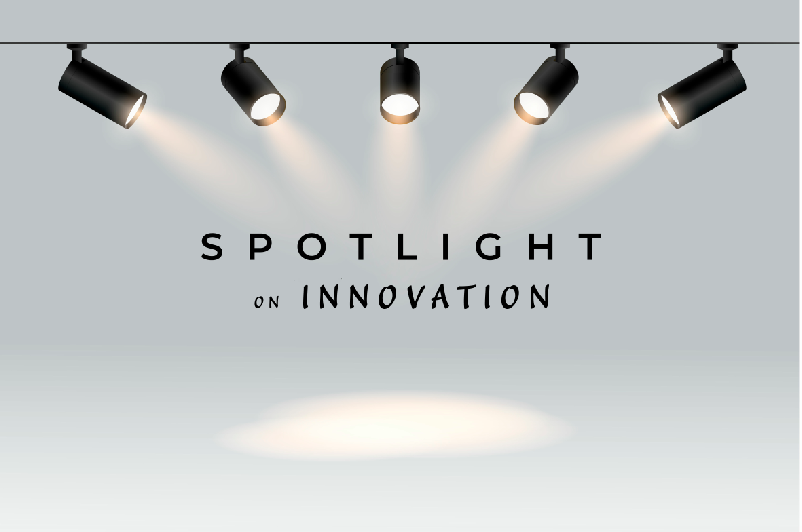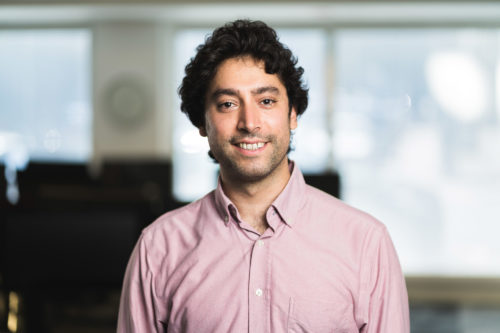
latest
Focus on remote monitoring and analytics

In the second of our new series, Spotlight on Innovation, we are focusing on trailblazers in the field of remote monitoring and analytics. By highlighting these companies at the cutting edge of new technology we hope to demonstrate some of the excellent work being done by startups in adult social care. We believe it is important to shine a light on crucial work being done to improve quality of life through use of advanced technologies such as Internet of Things (IoT) sensors and Artificial Intelligence (AI). Dr Peter Bloomfield, Head of Policy and research, Future Care Capital

Here we look at two companies, MiiCare and MySense, which are using technology to help people live healthier and more independent lives.
“AI for good is about using innovation to make the world a better place for the elderly. We’re using AI to keep them safe, active and connected with family and friends” Kelvin Summoogum, CEO MiiCare
Miicare is a London-based company launched in 2018 focusing on keeping older people safe, healthy and more connected in their own homes with personal AI.
Its AI powered voice assistant cube, Monica, acts as a companion, while also providing information, entertainment, and reminders.
By holding the cube’s SOS button, or by shouting “I need help,” an older person can use the system to call for assistance if they are in trouble. Feedback from users suggests that they prefer this to wearing a pendant.
It is also a telehealth system for remotely measuring vital signs including blood pressure, heart rate, oxygen saturation and temperature. This is done with wearable equipment monitored via a smart phone app.
Monica also monitors daily routines and usual patterns of movement around the house. In the event of any abnormal activity, for example a fall, the system can alert a carer.
The company was set up by Kelvin Summoogum after his grandmother fell at home and broke her hip, spending the night on a cold floor. She never regained her previous vitality and sadly died three years later.
This prompted Kelvin to focus on ways of preventing falls. He spent over a year working with a group of older people from lunch clubs and churches to understand the problem when it came to falls. His solution was MiiCube, an AI-based assistive technology.
Kelvin says the key was to develop a system that is easy to use, adapting the technology to the individual and not the other way round.
The research also highlighted the issue of loneliness among older people, so the technology was designed so that Monica (the cube) acts as a ‘companion’ for the user.
A user, 86 year old Pam, says in a video “I know it’s looking after me. The lady talks to me to remind me to take my medicine… It just keeps an eye on me and I find that very comforting.”
MiiCare was accepted into the Microsoft for Startups programme in 2019 and the Microsoft AI for Good acceleration cohort in 2020.
It has also been installed in the UK’s first dementia village, Harmonia in Dover, Kent.
For more information see https://www.miicare.co.uk/home
MySense – the wellbeing analytics platform
“Currently, health and care is mainly reactive. MySense gets ahead of the problem. It doesn’t replace professionals but facilitates better quality conversations and provides better care as the data helps to make decisions and validate hunches.” Olivia Harker, MySense UK Managing Director
MySense is a London-based company set up in 2016 by Lucie Glenday, now its CEO.
It uses home-based sensors to support vulnerable people to live independently for longer. The technology is designed to be easy-to-use, monitoring early changes in health and behaviour so that the right support can be put in place early.
It uses AI to analyse thousands of data points per person every day and learn about individual behaviours around nutrition, hydration, independence, activity and an overall sense of wellbeing.
A dashboard then displays the data insight highlighting any unusual patterns and triggering a notification to nominated responders and carers.
Subscribers receive a MySense kit with eight small motion sensors to place around the home. The monitoring data is passive, meaning there is no recording of video or sound as there are no cameras or microphones. Carers can use an app to check on an individual to see that they have got up and are following their normal routine.
A smartwatch worn by the user records heart rate, movement and step counts. The data from the device is displayed within the MySense dashboard as another indicator of wellbeing.
The initiative is currently being piloted in Stoke-on-Trent where the local NHS trust is assessing whether it reduces unnecessary trips to hospital.
The dashboard is monitored by the High Intensity Users Team to look for patterns, changes and areas of concern.
Helen Ashley, director of Strategy at University Hospitals of North Midlands, said: “The aim is to identify, intervene and resolve any issues or challenges the patients are experiencing to reduce the need for hospital care, maintaining health and well-being while promoting independence and choice for patients.”
MySense company is a founding member of the Data For Good Foundation, a non-profit organisation dedicated to improving public health in an ethical way.
For more information see https://www.mysense.ai/
The start-ups, technologies and products described in this article are to inform our audience. Future Care Capital does not endorse any company or solution and is an independent and neutral organisation.